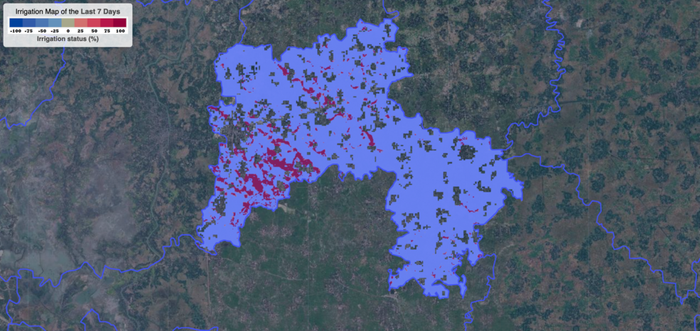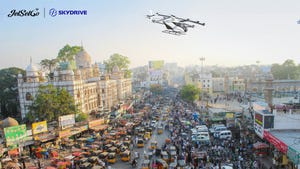NASA Satellite Data Helps Bangladeshi Farmers Save WaterNASA Satellite Data Helps Bangladeshi Farmers Save Water
Precipitation and water usage data in the region is being leveraged to help farmers save money, energy and water

NASA is providing satellite data to researchers from the University of Washington and Bangladesh’s Ministry of Agriculture, in a project to help rice farmers optimize water usage and crop health.
The data is being used as part of the Integrated Rice Advisory System (IRAS) program, established in Bangladesh to provide insight to farmers with rice crops in the region.
Typically, farmers in the area pump groundwater from aquifers – a cost- and energy-intensive process – to water crops during the dry season. Under the program, data on precipitation and groundwater levels is analyzed to give farmers more accurate insight on how much water they need and how much they have used.

A region in Bangladesh where over-irrigation has likely occurred Credit: NASA
By monitoring water usage, the IRAS program aims to optimize fuel and water use in the region and support a more sustainable agricultural industry.
“To create sustainable and climate-resilient agriculture for the future, we need to minimize irrigation waste and decarbonize the production by using affordable solutions that can be scaled globally,” said Faisal Hossain, IRAS’ leader.
NASA will be providing data and imagery to the project from its USGS Landsat mission, as well as from the Global Precipitation Measurement, a joint mission between NASA and the Japan Aerospace Exploration Agency.
Those data sets are then combined with information from GFS, the Global Forecast System, produced by the U.S. National Weather Service.
“The synergistic use of Landsat, GPM and GFS can help the world become more water-efficient and energy-efficient in growing food, while also becoming more affordable and convenient for farmers,” Hossain said. “Our hope is that this template can be applied to any region where we know what crop is being grown and what their crop water demand characteristics are.”
The IRAS team estimates the program could reduce agricultural water waste in Bangladesh by
30%, reduce agricultural fuel consumption by 45% and reduce carbon emissions by 300,000 tons per year.
The program is funded by Bangladesh's Department of Agricultural Extension.
About the Author
You May Also Like








